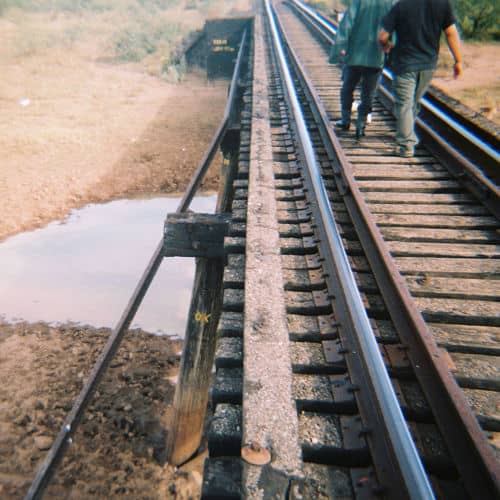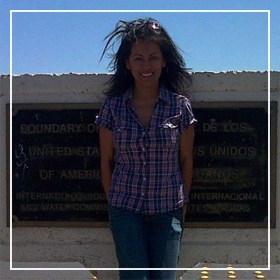Irregular immigration has produced political heat across the world. Dramatic photos of migrants crammed into wretched boats circulate in the media, while journalistic accounts tell stories of poor and desperate individuals deceived by organised crime ‘cartels’. When EUROPOL launched the European Migrant Smuggling Centre last February, it cited astonishing statistics on human smuggling operations: networks of unprecedented reach have taken over the market; profits are breaking records; ‘smugglers’ are able to transport anybody from asylum seekers to ‘economic migrants’ to members of terrorist and fundamentalist organisations.
All this has allowed for political leaders and authorities to frame clandestine migration processes as a war, a war where the evil is represented by the smugglers. But who are the smugglers? And to what extent does human smuggling actually jeopardise the security of the receiving state and that of the migrant? For those who have followed migration flows over the years, such doomsday narratives are far from new.
The smuggler has long been the quintessential predator of late modernity, with his exploits occupying, and at times even dominating, media headlines via the display of graphic images of victimisation and death.
The emphasis on smuggling networks’ transnational ties, the smuggling/trafficking nexus, and the conceptualisation of human smuggling as fundamentally coercive have been endlessly mobilised to justify immigration enforcement operations. Yet, empirical evidence shows that human smuggling across the world is largely the sum of highly heterogeneous organisations operating on small scales and in short time frames; that these groups are characterised by a lack of solid hierarchies and the existence of interchangeable figures; that they provide a service that is in great demand without necessarily exploiting clients; and that the smuggler and the customer may, at times, be the same person. An effective eradication of these organisations without addressing the causes of clandestine migration may thus prove difficult, for smuggling networks are deeply enmeshed within migratory flows.
Nonetheless, nation states all over the world tend to remain overwhelmingly focused on implementing a security-based policy. The recently signed EU-Turkey agreement is in fact another clear step in this direction. The strategy has proven difficult – if not dubious – for a number of reasons. First, enforcement of irregular migration operations through deterrence has often proven inefficient. The evolution of smuggling across the Asian, American, and Mediterranean corridors demonstrates this with dramatic clarity. Effectively blocking smuggling groups has often resulted in redirected unauthorised migration flows onto different routes.
Second, the implementation of these security-based policies increases the level of risk faced by those on the move, who in an attempt to avoid detection often opt, with the hopes of reaching less precarious locations, for more remote and hence more dangerous travel mechanisms and routes. Finally, the militarisation of border control has accompanied a growing tendency of smuggling groups to specialise and to increase their capacity of delivering specialised services to would-be migrants in a systematic and standardised manner. This has leading to the emergence of increasingly precarious conditions characterised for specific forms of smuggling violence afflicting those on the move.
The urgency of migrant ‘crises’ all over the world calls for alternative policy measures. A better understanding of human smuggling is crucial in light of ensuring the security of the migrants and that of the receiving states.
On 5 and 6 April, an international group of scholars will gather at the European University Institute in Florence to challenge widely-held notions about smuggling and to provide an empirical basis for one of the least researched fields in migration studies: the facilitation of irregular migration. The workshop ‘critical approaches to irregular migration facilitation: dismantling the human smuggler narrative’ constitutes the first collective attempt to provide grounded and much needed critical notions in the area of human smuggling scholarship.
Our goal is to furnish unique insights into the much-debated issue of human smuggling, at a time when Europe is calling for the official return of strict immigration controls and restrictions to asylum conventions; America is witnessing the spectral return of the radical-right and supremacist groups; and calls for the establishment of walls, fences, and detention facilities for migrants and refugees seem to be spreading like wildfire.
Over the next few days, in preparation for the workshop and through a dual collaboration between openDemocracy and Allegra Lab, we will first present a ROUNDTABLE that records our participants’ approaches to human smuggling. The following week we will publish a series of articles from the workshop participants on the main lessons found in their work. Drawing on firsthand work in Europe, the Middle East, southeast Asia, Oceania, Africa and the Americas, this series reveals smuggling as a complex practice that cannot be boiled down to the narrow parameters of transnational crime, violence and greed. In the words and works of our contributors, smuggling emerges instead as a far richer practice embedded in notions of collective solidarity and support. We invite you to join us in this global journey on the facilitation of migration across five continents.
Final programme of the workshop
Featured image courtesy of Border Film Project






